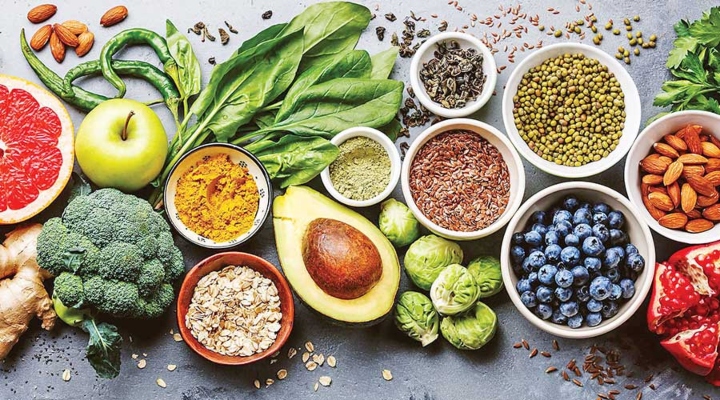Tips to maintain budget-friendly Plan5t-based lifestyle
Plant-based diet lead to individuals reducing their risk of cancer, heart disease, and chronic pain

Plant-based diets are popular for many reasons, from health benefits to environmental impacts. The eating style focuses primarily on plant foods such as fruits, vegetables, seeds, legumes, and grains while avoiding animal products such as meat, eggs, and dairy. Plant-based diets place plant foods at the forefront of their consumption, with little to no animal-based foods included. This can lead to individuals reducing their risk of cancer, heart disease, and chronic pain, as well as possibly lowering the number of medications they have to take.
Is a Plant-Based Diet More Expensive?
All households, food choices, and grocery budgets are different, and depending on where you live, some types of plant foods are more expensive than others. However, research shows plant-based diets can actually be less expensive than animal food-inclusive diets. Research published by Oxford University in The Lancet revealed that eating vegan meals at home could result in 30 percent less spending than meat-based meals. Vegetarian and flexitarian meals can save you 14 percent (or more!) on your grocery budget, and diets that include fish – but no meat – can save you 2 percent.
Budget Tips for a Plant-Based Lifestyle
While research shows you can save money on a plant-based diet, this may not be the case unless you plan carefully. Below are some tips to help you make the most of your budget when following a plant-based lifestyle.
Skip the Mock Meats
The research from Oxford showed that the budget savings from plant-based diets were only possible if shoppers did not purchase mock – or alternative – meats. Processed, mock meats are popular, but they are also very expensive. What's more, you can find more nutrient-dense and less processed ways to get in protein than relying on these alternative meat products.
Plan Your Meals
Meal planning is the best way to ensure you make use of your groceries and only purchase what you know you need and will use. Before you shop, take some time to plan what you will eat throughout the week. This will help you avoid relying on take-out and restaurant meals or frequent quick stops to the grocery store to buy something pre-made, which will be more expensive. You'll also be less likely to have food waste if you plan ahead and use up what you buy.
What's more, meal planning is associated with healthier meals and better weight balance.3Buy Frozen Plant Foods. Frozen fruits and vegetables are just as nutritious as fresh options. Since most frozen produce is picked at its peak and frozen immediately, the nutrients are preserved. What's more, frozen produce is often more affordable than fresh, and since it keeps for much longer, you'll be less likely to have food waste, saving you money in the long run.
Organize Your Fridge and Pantry
A disorganized collection of foods in your fridge, pantry, and freezer can lead to spoilage, rebuying foods you already have, or freezer burn and stale items. Take the time to inventory your food items and keep a running list to ensure you know what you have. If you decant and transfer your foods to clear containers and organize everything in a way that allows you to see what you have, you'll save money by avoiding food waste.
Use the Whole Plant
Whenever you use a plant to create a meal, consider which parts of the plant you typically throw away. There are several ways to use up food scraps to make other delicious meals, sauces, or products that you can add to enhance the quality and flavor of your meals while saving money. Here are some ideas:
• Save onion, carrot, and other veggie scraps in the freezer to make vegetable stock
• Candy or preserve the peels of citrus fruit for a highly flavorful food additive or topping
• Grate stems and hard sections of foods like cabbage, broccoli, and kale to make slaws or naturally fermented condiments
• Roast squash seeds for a healthy, high fiber and protein snack








































